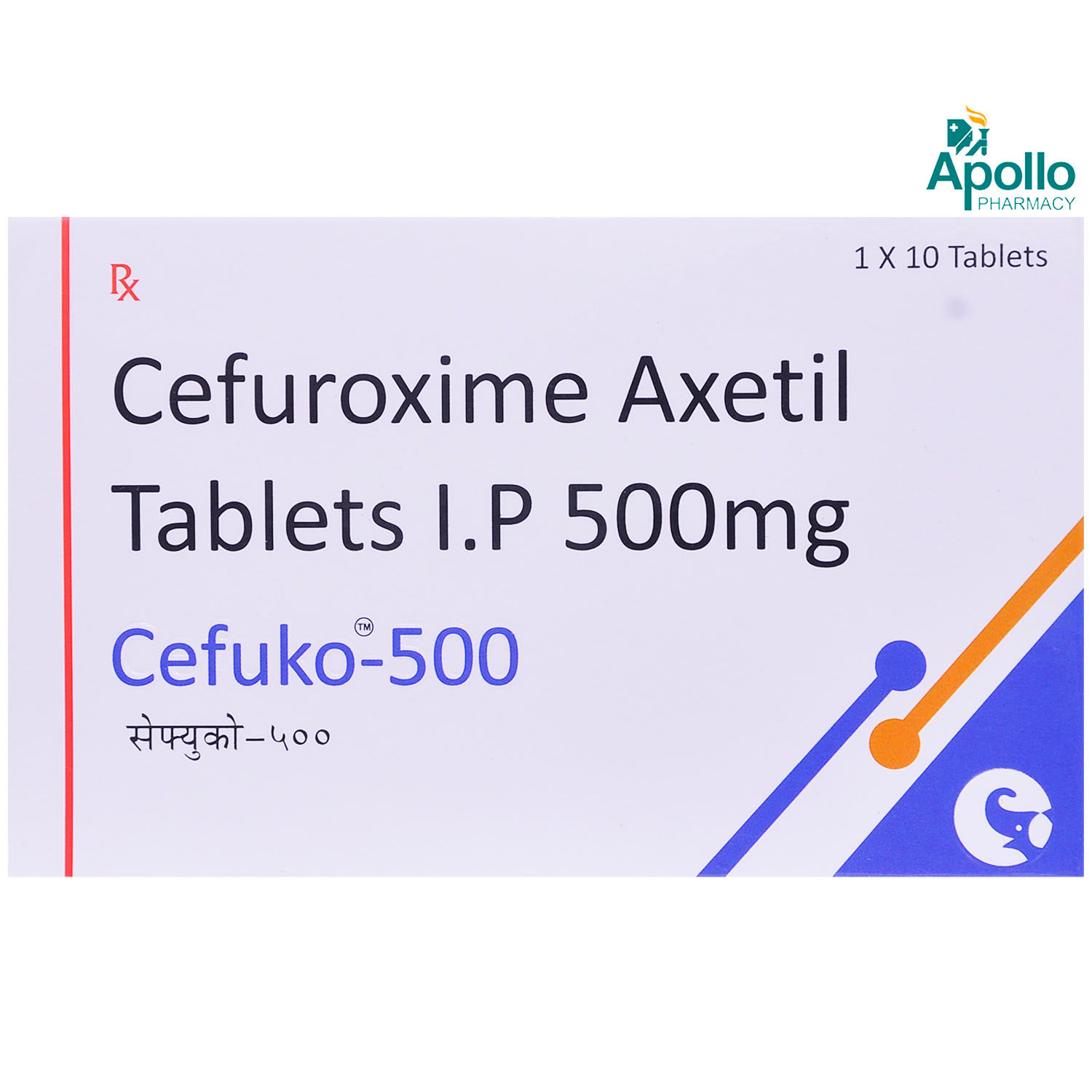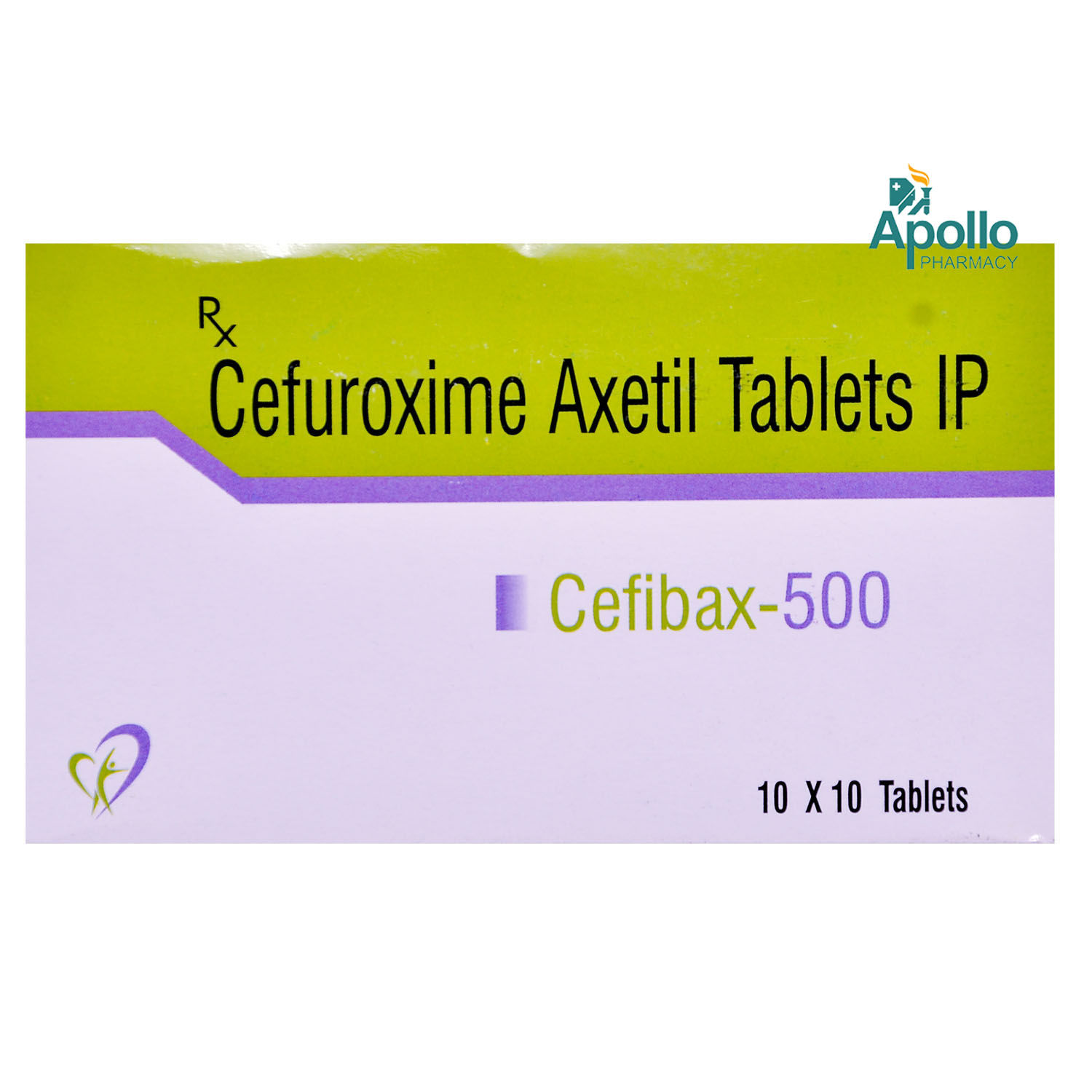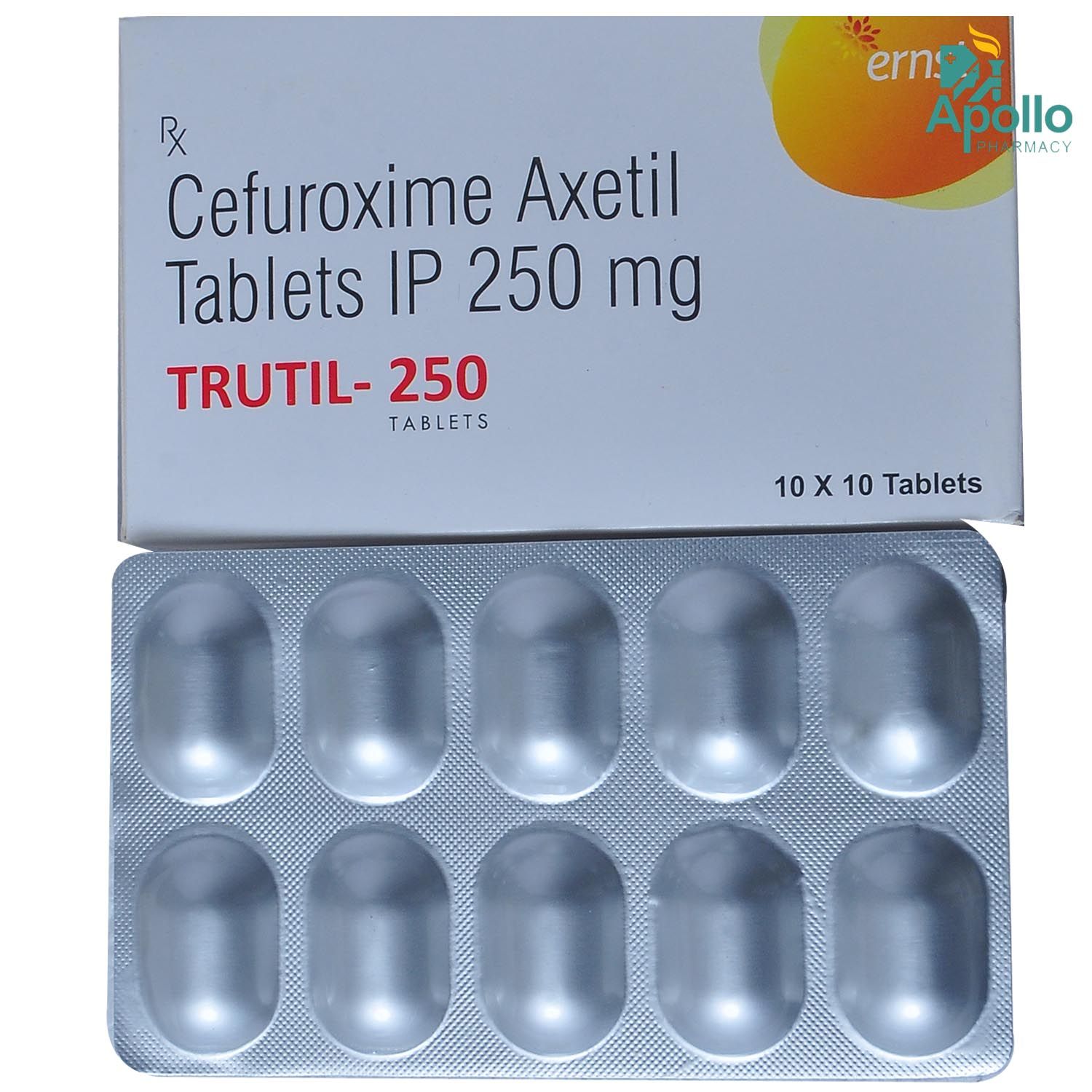Cefuroxime
About Cefuroxime
Cefuroxime belongs to the class of cephalosporin antibiotics indicated to treat a wide range of bacterial infections including lower respiratory tract infections, urinary tract infections, skin and skin structure infections, septicemia (blood infection), meningitis (infection of brain and spinal cord), gonorrhoea (sexually transmitted infections), bone and joint infections. Cefuroxime is also used to prevent infections during surgery.
Cefuroxime is a broad-spectrum antibiotic that acts against a wide range of bacteria. It works by blocking the activity of an enzyme that makes peptidoglycan (a vital component of the bacterial cell wall). This prevents the formation of bacterial cell covering, thereby kills the bacteria and treats bacterial infection.
A healthcare expert will administer Cefuroxime; do not self-administer. In some cases, Cefuroxime may cause side effects such as diarrhoea, nausea, vomiting, pain, and swelling at the site of injection. Most of these side effects do not require medical attention and resolve over time. However, if the side effects persist or worsen, consult your doctor.
Let your doctor know about your medical condition and the medications you are taking to avoid the occurrence of potential interactions. Consult your doctor if you are pregnant, breastfeeding, suspect you are pregnant or plan to have a baby; your doctor will weigh the benefits of Cefuroxime therapy against the risk to your baby. Cefuroxime may cause dizziness, so drive only if you are alert.
Uses of Cefuroxime
Medicinal Benefits
Cefuroxime is used to treat respiratory tract infections, ear infections, skin infections, genitourinary infections, and bone infections. Besides this, Cefuroxime is also used to prevent infection after surgery and in the early treatment of Lyme disease caused by bacteria (Borrelia burgdorferi) in adults and children over the age of 12 years. Cefuroxime is a broad-spectrum antibiotic that acts against a wide range of bacteria. It works by blocking the activity of an enzyme that makes peptidoglycan (a vital component of the bacterial cell wall). This prevents the formation of bacterial cell covering, thereby kills the bacteria and treats bacterial infection.
Directions for Use
Storage
Side Effects of Cefuroxime
- Pain and swelling at the site of injection
- Diarrhoea
- Nausea
- Vomiting
Drug Warnings
Do not take Cefuroxime if you are allergic to any of the contents. Consult your doctor if you are pregnant or breastfeeding. Inform your doctor if you have kidney or liver problems. Cefuroxime may cause Clostridioides difficile-associated diarrhoea (CDAD). If you experience a severe, persistent diarrhoea, or if you find blood or mucus in stools, consult your doctor immediately. Let your doctor know about your medical condition and the medications you are taking to avoid the occurrence of potential interactions.
Drug Interactions
Drug-Drug Interactions: Cefuroxime may interact with aminoglycoside-type antibiotics (gentamicin, neomycin), diuretics (furosemide), gout medications (probenecid), anticoagulants (warfarin), and oral contraceptives or birth control pills (levonorgestrel, medroxyprogesterone), and certain vaccines (BCG, cholera vaccine live, typhoid vaccine live).
Drug-Food Interactions: Avoid grapefruit juice as it may affect the working of Cefuroxime.
Drug-Disease Interactions: Inform your doctor if you have colitis (inflammation of the colon), kidney or liver disease.
Drug-Drug Interactions Checker List:
Safety Advice

Alcohol
cautionIt is not known if alcohol affects Cefuroxime. However, as a precautionary measure, it is advisable not to take or limit alcohol.

Pregnancy
cautionPlease consult the doctor as there are no adequate and well-controlled studies on pregnant women. Your doctor will prescribe only if the benefits outweigh the risks.

Breast Feeding
cautionPlease consult your doctor. Your doctor will weigh the benefits and potential risks before prescribing Cefuroxime.

Driving
cautionCefuroxime may cause dizziness. Drive or operate machinery only if you are alert.

Liver
cautionLimited information is available regarding the use of Cefuroxime in patients suffering from liver impairment. Please consult your doctor. Your doctor will prescribe only if the benefits outweigh the risks.

Kidney
cautionDose adjustment may be needed. Please consult your doctor if you have kidney problems.

Children
safe if prescribedCefuroxime can be given safely to children provided a child specialist has prescribed the dose.
Habit Forming
Diet & Lifestyle Advise
- After completing the course of Cefuroxime, probiotics should be taken to restore healthy bacteria in the intestine that may have been killed. Taking probiotics after antibiotic treatment can reduce the risk of antibiotic-associated diarrhoea. Certain fermented foods like yoghurt, cheese, sauerkraut, and kimchi can help restore the intestine's good bacteria.
- Include more fibre-enriched food in your diet, as it can be easily digested by gut bacteria which helps stimulate their growth.
- Avoid taking too much calcium enriched foods and drinks as it might affect the working of Cefuroxime.
- Avoid intake of alcoholic beverages with Cefuroxime as it can make you dehydrated and affect your sleep. This can make it harder for your body to aid Cefuroxime in fighting off infections.
Special Advise
- Regular monitoring of blood count, haemoglobin levels, renal and liver function tests are recommended.
- Cefuroxime might affect lab test results. Inform the person doing the tests that you are taking Cefuroxime.
Patients Concern
Disease/Condition Glossary
Bacterial infection: A bacterial infection is a condition in which harmful bacteria enter, multiply and infect the body. It can target any body part and multiply very quickly. When you get infected with bacteria, you can experience generalized symptoms like fever, chills, and fatigue. Anyone can become infected with a bacterial infection. But, people with a weak immune system or taking immunosuppressive medicine are more prone to bacterial infection.
FAQs
Cefuroxime belongs to the class of cephalosporin antibiotics indicated to treat a wide range of bacterial infections including lower respiratory tract infections, urinary tract infections, skin and skin structure infections, septicemia (blood infection), meningitis (infection of brain and spinal cord), gonorrhoea (sexually transmitted infections), bone and joint infections. Cefuroxime is also used to prevent infections during surgery.
Cefuroxime works by blocking the activity of an enzyme that makes peptidoglycan (a vital component of the bacterial cell wall). This prevents the formation of bacterial cell covering, thereby kills the bacteria and treats bacterial infection.
After taking an antibiotic, you may need to wait up to three hours before eating or drinking any dairy products, including milk, butter, yoghurt, and cheese. Grapefruit juice and dietary supplements containing minerals like calcium may also affect the working of antibiotics.
Cefuroxime is used to treat bacterial infections and does not treat viral infections such as cough, flu or cold.
Cefuroxime may interact with birth control pills and lower its efficiency. Inform your doctor if you use any birth control pills.
Cefuroxime may cause Clostridioides difficile-associated diarrhoea (CDAD). If you experience a severe, persistent diarrhoea, or if you find blood or mucus in stools, consult your doctor immediately. Do not take anti-diarrhoeal medicine on your own.






